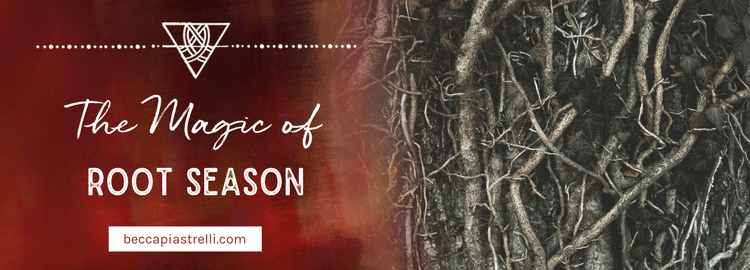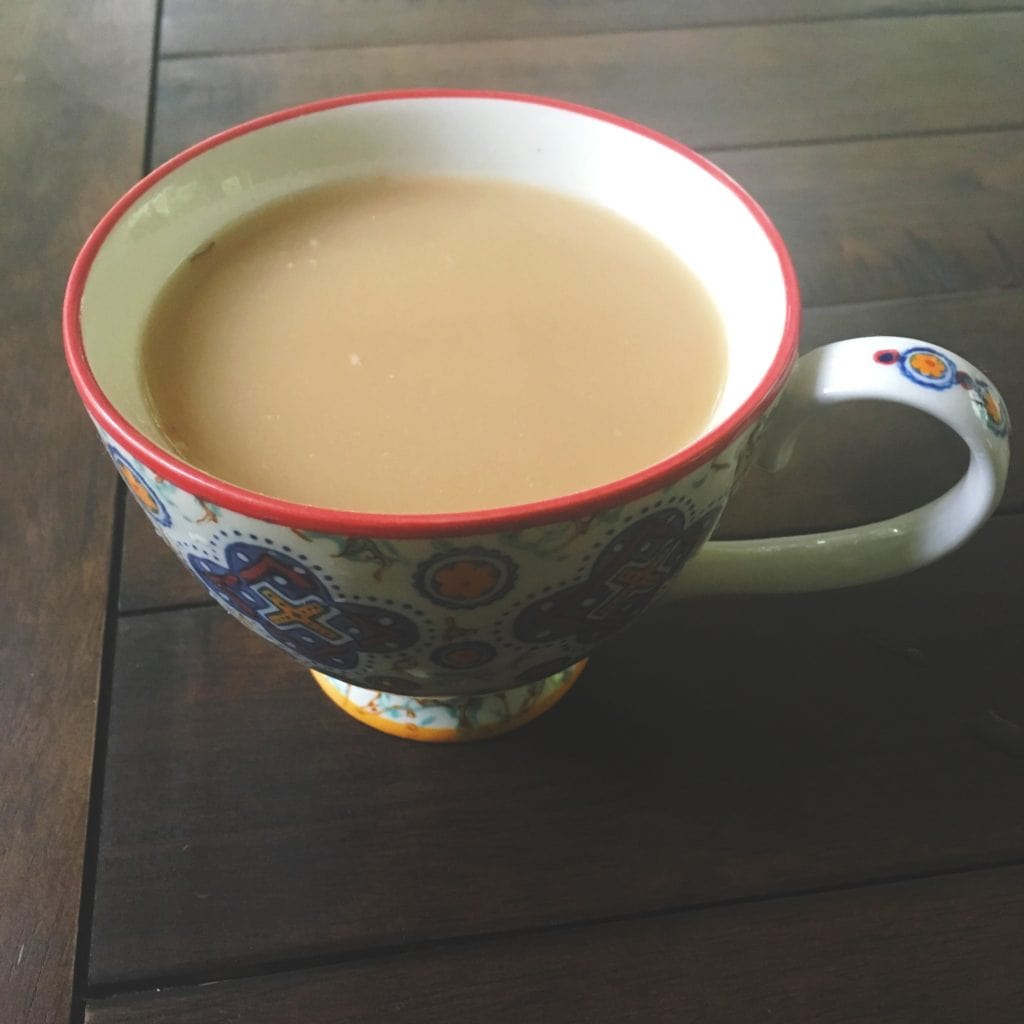
Autumn, in many ways, is the seasons of roots.
As the air begins to chill and move towards winter’s frost, the plants are shifting their energy down towards their root to stay strong and survive the winter. This is the time when we harvest many of the roots, harnessing this powerful energy of resilience and warmth. We roast them to eat or make teas with them, physically taking them into our bodies to nourish our organs, warm our bellies, and keep strong for the coming winter months.
There are also the roots of us humans. The long line of ancestors—those who came before us and survived those winters so we could stand here today.
Autumn is what I like to call Ancestor Season—it is a time of remembering. We are reminded by the food we eat, the tea we drink, the chill of the wind, and the holidays of our culture. It is a time to remember and honor.
If you’ve been following me this year, you know that I’ve been doing deep ancestral healing work of my own.
What started as a deep feeling of remembrance has evolved into a deep dive into my genetic ancestry, cultural heritage (including ancestral foods, music, folk tales, and even hair braiding), dream work, altar building, and medicine making.
My intention has been to come into deep communion with my roots—to reclaim my own indigeneity and be able to get a clearer understanding of what that means knowing I come from many generations of people who have migrated and lived in so many different places. It’s vast and powerful work.
But, with the delight of uncovering my ancestry also comes quite a bit of shadow.
This looks different for everyone, but for me, the primary feeling has been shame. I’ve had to acknowledge some moments in history where my ancestors played a part I never would have chosen, and then come to forgive both them and myself so I can move forward to make a positive impact in the world.
I am directly descended from original European colonizers of this land. The other day, my mother read aloud from a diary of one of my ancestors who first colonized Maine bragging about his village being surrounded by Indians and having to kill them. (gulp) My lineage has experienced its share of pain and trauma—alcoholism, abuse, divorce, rejection by the family, even untreated and hidden mental illness. And that’s just what was written down on paper and passed down.
One of the best quotes my teacher Liz said to me recently was this: “Shame is just colonized remorse.”
So, with a deep breath and brave heart, I am facing this shame I feel in my bones and in order to decolonize and reclaim the magic of my people and to remember and tell the stories of beauty and resistance and allyship that weren’t written in the diaries that were passed down.
Ancestral work truly is remembering that you belong to this earth again.
Because to wallow in the shame of my ancestors or to deny that I have culture because of my whiteness is doing a disservice to the ancestors who thrived in community and with the earth in their folkways. I just needed to dig deep into my ancient roots to find out what I’m made of—all of it.
…which brings me back to root season.
So many of us look forward to this time of year.
Whether it’s our passion for gourd-flavored warm drinks, getting to dress up like and honor the dead (our roots), or simply give ourselves permission to put on a cozy sweater and read a book in the hazy afternoon sunlight, autumn is the beautiful sigh that we crave space for.
In Celtic culture, their alternative to the body chakra system is known as the three cauldrons. Your head is the cauldron of wisdom, your heart is the cauldron of motion, and your belly is the cauldron of warming. Autumn is a time to nurture your cauldron of warming.
Shifting your focus to roots (both plant and human) is a beautiful way to warm your cauldron.
Plant roots are a physical reminder of the pathway to the underworld. They dig deep and gnarled down into the dark earth to root in so, above ground, the plant can extend high and bright towards the sun.
In an alternative version of the story of the Greek Goddess Persephone, she isn’t actually abducted and raped by Hades to become queen of the underworld. Instead, she drinks the tea of roots and willingly chooses to travel to the underworld. I like that version better because it shows her willingness to uncover shadow for humanity.
One of the plant roots I’ve chosen to work with and be nourished by is the dandelion.
A fun fact about dandelion is it was brought over to the new world on the Mayflower as a source of food, medicine, and dye. Of course, these days, golf courses and lawn curators around the country are spraying loads of toxic RoundUp to get rid of the dandelions that don’t seem to go away.
How ironic.
Dandelion often pops up in areas where the soil is depleted, as she provides nitrogen to help bring the soil back into balance.
That’s why I like her so much—she represents resistance and resilience.
A practice I’ve begun is leaving a cup of dandelion tea at my bedside at night—inviting in the spirits of my ancestors to drink in the nourishment and share any wisdom about how they lived in my dreams.
Here’s a recipe for roasted dandelion chai (given to me by my teacher Liz) that I’ve found to warm my cauldron quite nicely.

Blend together: 1 cup roasted dandelion root*, 6 tbsp fennel seed, 30 cardamom pods, 60 cloves, 6 cinnamon sticks, 2 tbsp dried ginger root, 1.5 tsp peppercorns, 12 bay leaves.
Add 1 tbsp tea mixture for each cup of water. Simmer for 5 mins, then let steep for another 10 mins. Add honey and milk as desired.
*Spread dried dandelion root on a baking sheet and roast in oven at 400F until it starts smelling nice (about 4-7 mins). Be careful not to burn.
Now I’d love to hear from you!
What is your relationship to your roots? Have you dug around to understand where you come from? What are your favorite nourishing roots for the fall?
Share with me in the comments below.
I want to credit and thank my teacher, Liz Migliorelli, whose class The Folk Medicine & Magic of Old Europe was incredibly helpful in my research and understanding of this vast topic. This work is inspired by that class.